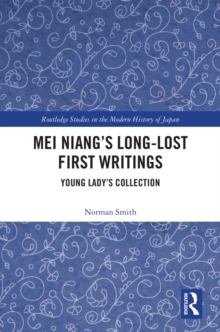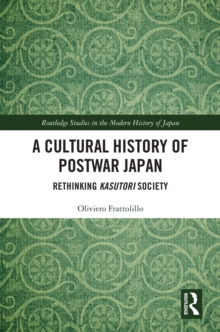
Mei Niang's Long-Lost First Writings : Young Lady's Collection EPUB
by Norman Smith
Part of the Routledge Studies in the Modern History of Japan series
EPUB
Description
In 1944, the novel Xie (Crabs) by Mei Niang (1916-2013) was honored with the Japanese Empire's highest literary award, Novel of the Year. Then, at the peak of her popularity, Mei Niang published in Japanese-owned, Chinese-language journals and newspapers in the Japanese puppet state of Manchukuo (1932-1945), Japan, and north China. Contemporaries lauded her writings, especially for introducing liberalism to Manchuria's literary world. In Maoist China, however, Mei Niang was condemned as a traitor and a Rightist with her life and career torn to shreds until her formal vindication in the late 1970s. In 1997, Mei Niang was named one of "Modern China's 100 Writers." The collection that is translated in this volume, Xiaojie ji (Young lady's collection), was published in 1936, when she was 19 years old. Long thought forever lost in the violence of China's civil war and Maoist strife, the collection was only re-discovered in 2019.
This is the first book-length, English-language translation of the work of this high-profile, prolific New Woman writer from Northeast China. Mei Niang's Long-Lost First Writings will appeal to those interested in Chinese literature, the Japanese Empire, historic fiction, history, women's/gender history, and students in undergraduate and graduate level courses. To date, English-language volumes of translated Chinese literature have rarely focused on Manchukuo's Chinese writers or centered on those who left the puppet state by1935.
This volume fills an important historical lacuna - a teenaged Chinese woman's views of life and literature in Japanese-occupied Manchuria.
Information
-
Download - Immediately Available
- Format:EPUB
- Pages:140 pages
- Publisher:Taylor & Francis
- Publication Date:09/06/2023
- Category:
- ISBN:9781000893311
Other Formats
- PDF from £35.99
Information
-
Download - Immediately Available
- Format:EPUB
- Pages:140 pages
- Publisher:Taylor & Francis
- Publication Date:09/06/2023
- Category:
- ISBN:9781000893311










